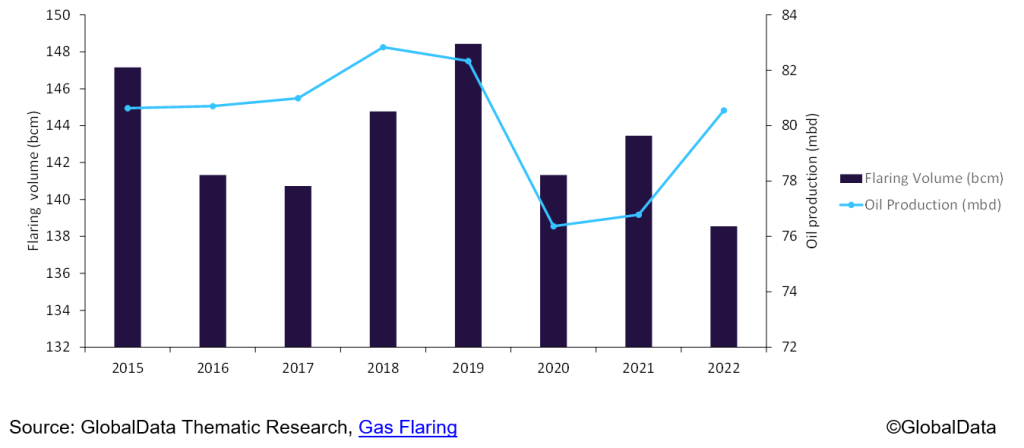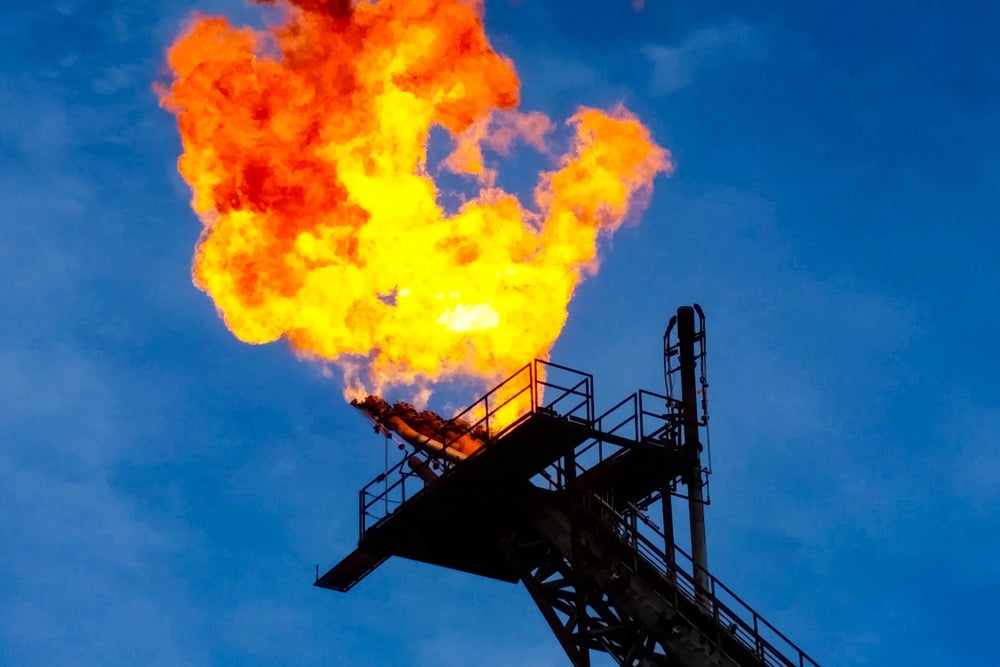Gas flaring activity has been long associated with crude oil production. As crude oil became the backbone of the world economy, gas flaring became more common. Eventually, people began to recognise the environmental ill effects and associated monetary losses caused by gas flaring. This has resulted in global efforts to monitor and mitigate the activity.
Natural gas is an economic resource that is in great demand in the world economy. Flaring takes place primarily because of a lack of gathering systems for associated natural gas generated during oil production. Oil producers stand to boost their revenues by selling this gas as liquified natural gas (LNG), compressed natural gas (CNG), or by converting it to a gas-to-liquids (GTL) fuel. A collective effort is needed from multiple operators to aggregate and monetise associated gas.
Global Flaring, 2015 – 2022

Environmentally conscious investors are putting pressure on oil and gas companies to mitigate flaring and venting activities. The World Bank is a major investor in energy projects and has an ongoing initiative that invites oil producers to eliminate routine flaring from their operations by 2030. Oil and gas companies could run the risk of devaluation by ignoring calls for reducing flaring activity. Such a scenario impacts companies’ ability to garner investments in the future.
The Paris Agreement of 2015 has bolstered efforts to reduce global flaring. New regulations have been introduced in countries such as the US and some in the Middle East, which have helped reduce flaring volumes. In markets where the associated gas can be monetised, companies are employing flare gas recovery systems to direct this valuable resource to alternate processes, and thus cut down on routine flaring.
The growing impetus to reduce gas flaring has paved the way for alternative solutions for stranded gases. The main reason for gas flaring is the non-availability of a financially feasible gathering system over the operational lifetime of the asset that produces stranded gases. Alternative solutions, such as power generation from stranded gases, along with transmutations such as GTL, CNG and LNG at smaller scales, are becoming viable for the monetisation of these gases.
Further discussion on major gas flaring countries and their efforts to reduce flaring activities, along with the role of oil and gas industry leaders in curtailing flaring can be found in GlobalData’s new theme report, ‘Gas Flaring’.





